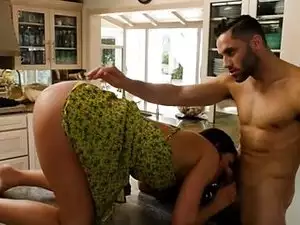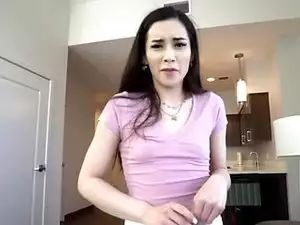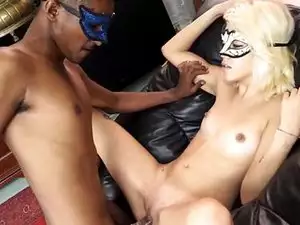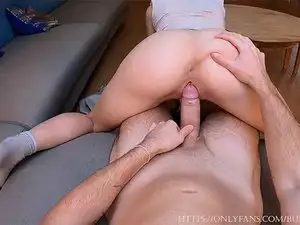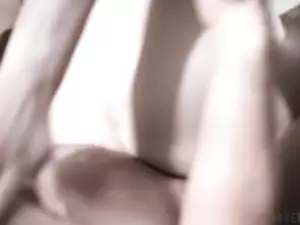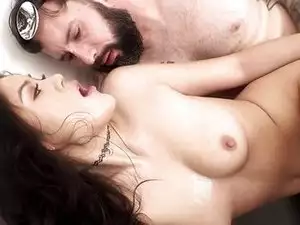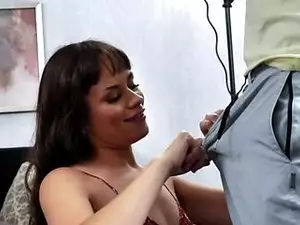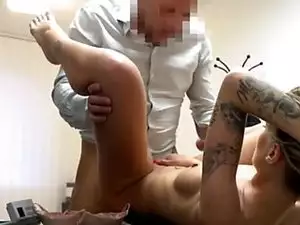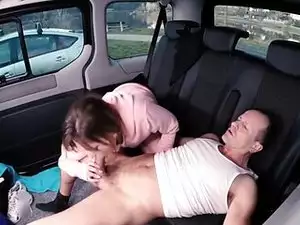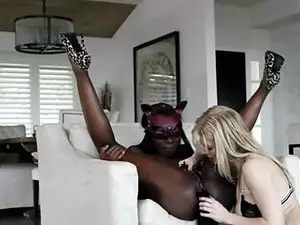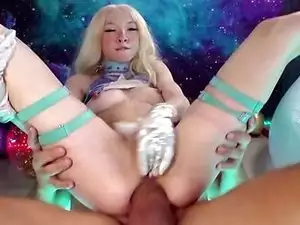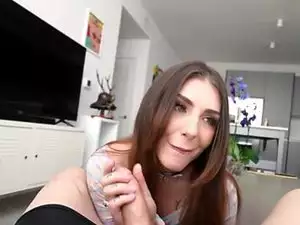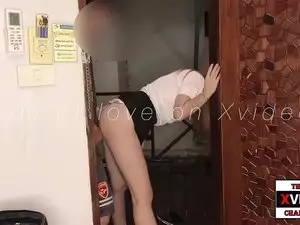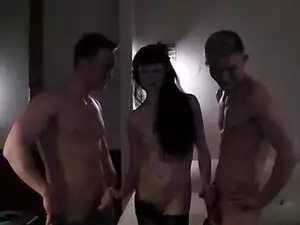A Well-Lived Life 2 - Book 7 - SakurakoChapter 57: Land Of The Rising Sun, Part III free porn video

June 23, 1994, Oguni, Yamagata Prefecture, Japan
My first week in Japan flew by, and a routine developed. Sakurako would wake me; I’d exercise and run, then shower and have breakfast, and share tea with Sakurako. After breakfast, I’d meditate, and then have my training session. After lunch, I’d work in the garden, or, as I had this day, wash the floors in the house. Hiroshi would accompany me back to the cottage and we’d talk while I washed up and dressed for dinner. After dinner, I’d spend a bit of time listening to the conversation with the other students, and occasionally speaking, before finally retiring to my room.
As I lay on my futons, I recapped the day, trying to find areas where I’d done well, and where I’d failed. My body clock had adjusted, which meant I didn’t simply fall asleep as soon as my head hit the pillows, which allowed me the extra contemplation time.
What I found most interesting was that I’d gone from basically sitting on my butt for ten hours a day, in one way or another, with two hours of exercise, to nearly eight hours of exercise and about two sitting on my butt, but in meditation. In addition, if I excluded the breakfast conversations with Sakurako, the pre-dinner conversations with Hiroshi, and my chat with the monk, I had probably said no more than two hundred words in the week, with long stretches where I said nothing to anyone, and had no distractions of music, TV, computers, or work. I also didn’t have family and friends, and I felt a gnawing hole in my inner self, longing to see them.
As I fell asleep, my last thoughts were of my wives, and the warm embrace I’d receive when I returned home.
June 24, 1994, Oguni, Yamagata Prefecture, Japan
“When is your birthday, Steve-san?” Sakurako asked as we sipped tea after breakfast on Friday morning.
“April 22nd; when is yours?”
“December 3rd.”
“You were born in 1979, right?”
“Yes. I’m fourteen. And you were born in what year?”
“1963. I’m 31.”
“How long have you practiced karate?”
“Almost thirteen years. I started in the Fall of 1981 when I went to Chicago for college.”
“What is your work?”
“I own a company that writes computer programs for lawyers and doctors, mostly. We also do other things with computers, too.”
“You started it?”
“Yes; right after we graduated, four friends and I started it. They work for me.”
“May I ask you a personal question?”
“Of course.”
“Are you married? Do you have children?”
“Yes, I’m married, and I have seven children.”
“Seven! Wow! You should perhaps have Grandfather’s name! «裕» (Hiro) means ‘abundant’! Or perhaps «昌樹» (Masaki), which means flourishing tree! It is not common for Japanese to have large families these days. In the past it was, but no longer. What are your children’s names?”
“In order, Jesse, Matthew, Birgit, Michael, Albert, Stephie, and Ashley.”
“Do these names have meanings like Japanese names? Well, the symbols that we use for names have meanings, if you know what I mean.”
“Yes; I know the Kanji symbols have meanings of their own, but you can associate them with the name as well. All the names have meaning, I’m sure, but I don’t know them. It’s not something we usually worry about. You know, I never asked, but what does your name mean?”
“«桜子» (Sakurako) means, ‘child of cherry blossoms’. The word for cherry blossom is «桜» (sakura) and adding ‘-ko’ means child or girl,” she replied, then continued. “If you do not know the meaning of the names, how do you decide?”
“We pick names we like,” I said. “Or, in the case of Birgit, Albert, and Stephie, they are named after other people we love who have the same names.”
“That also happens in Japan. Are you going to have more children?”
“No.”
“You don’t want to?”
“I’m not able to,” I said without thinking, and too late to stop.
“Because of the accident Hiroshi told me about?”
“No.”
“So why?”
I’d walked right into this line of discussion without even thinking about it, blowing the entire past week’s progress of keeping my mouth shut and carefully thinking. I hated the idea of lying, but I had to be very careful how I presented the information. I’d make my answer as minimalist as possible, and try to direct the conversation away from the topic.
“After Ashley was born, I had an operation to prevent it.”
“Oh! I’ve never heard of any such thing. Our education on such things in school is very limited. They don’t teach much.”
And I couldn’t imagine her grandfather or grandmother having a frank talk about sex with her. With her parents several hundred kilometers away, that would leave her to the school-girl rumor mill, which I’d heard bits and pieces of in sixth and seventh grade. It was as bad as the school-boy rumor mill when I’d been in parochial school in fourth, fifth, and sixth grades. I just needed to maneuver a safe path out of tbe conversation.
“It’s not important,” I said. “Anyway, my eldest, Jesse, just finished second grade. Michael and Albert will start school this year.”
“Who takes care of your kids? Your wife?”
“My wife is a doctor,” I said carefully. “We have a nanny who watches the kids during the day. When they were little, we had a nanny who lived with us to help around the clock. I’m sure you can imagine how it is with so many kids!”
“Your wife is a doctor? What kind?”
“A trauma surgeon. She works in the Emergency Room.”
“I would have thought with so many children, she would stay at home.”
If Jessica was mother to all seven children, there is no doubt in my mind she’d have stayed at home. The conversation wasn’t getting any easier. Fortunately, it was almost time for Sakurako to leave. I drained my teacup and stood. She stood, I bowed and thanked her, and she gathered the tray and left. I resolved to be MUCH more careful with my conversations with her, and to actually THINK before I opened my mouth.
Once she left, I got my copy of the Lotus Sutra, my binder, and a pencil, and went out to the garden. I looked up and saw the cloudy sky had turned very gray, and it looked to be threatening rain. I went back inside, put the things down, and brought the futon and duvet back into the cottage. Sakurako had warned me about letting them get wet, so I decided on an abundance of caution. Once I’d put them back in their place, I took my things to the garden to read.
About fifteen minutes later, the skies opened up and I quickly gathered my book and binder, and hurried back inside. I arranged some pillows in the corner, and sat on some and leaned against the others, and read several pages in the book. I put it down, and closed my eyes to think about what I’d read. The book was dense, and the translation was about one hundred years old, which meant at times I had to think through the meaning of a text because the common usage of words had changed. Fortunately, years of experience reading William F. Buckley and The Economist, as well as philosophy and theology, made it much easier.
My first goal, one which Anala had repeatedly talked to me about, was to know myself. The ultimate question I faced was ‘Who am I?’. The answer was not ‘husband, father, lover, friend, and businessman’. Nor was it ‘Sensei’. Those were all things I DID. They all played a part in defining me, but didn’t represent the whole - the unified person. Deep down, at my core, who was Steve Adams, the human being? And how could he, ever, in any universe I could imagine, become a true bodhisattva, let alone a Buddha.
The simplest understanding of bodhisattva, the ‘seeker of enlightenment’, could well apply to me, but I questioned if I was TRULY on the path to enlightenment, and TRULY seeking it, or if it was simply a phase I was going through. What made me question my own motives was that I had heard all of this before, and had even tried to implement it in my life. But, almost as soon as Anala had left, I had reverted to my old ways. I was concerned that was going to happen again when I left what amounted to a monastery where I was cloistered and returned to the ‘real’ world.
But what if, I thought, THIS was the real world, and I was seeing clearly? What if I’d built a life on ephemeral images and thoughts, which would be swept away? I’d experienced that in the past - Birgit’s death; Stephie’s death; Nick’s death; and most recently, Jorge’s death. I was missing something - something big. I wasn’t seeing clearly, and I didn’t know how to open my eyes properly. It wasn’t that the people waiting for me back in Chicago weren’t important - they were. It wasn’t that I would walk away from them - I wouldn’t and couldn’t!
I opened my eyes, picked up my binder, and began writing in my journal, trying to make heads or tails out of the jumbled thoughts in my brain.
June 26, 1994, Oguni, Yamagata Prefecture, Japan
“Thank you for seeing me again, Yoshiro-san,” I said. “I’m confused.”
“Not an uncommon problem. Unconfuse yourself.”
I laughed softly and shook my head, “As if it were that easy.”
“Did I say it was easy? Or that you could do it today, this instant?”
“No.”
“Stop looking for instant answers, Steve-san. Westerners want everything solved and tied up in a neat bow today, instantly. Life is more complicated than that. Take one scientific endeavor - the unified field theory. Is it solved?”
“No, it isn’t.”
“And men have thought about it, written about it, talked about it, and lived and died trying to resolve it. Was their effort wasted because there is no answer at this time?”
“No. Each one builds upon the work of the other.”
“Yes...”
I nodded, “‘A journey of a thousand miles begins with a single step’. Lao-Tzu, in the Tao Te Ching.”
“Trite, but true. What do you do for work?”
“I’m a computer programmer and businessman.”
“Did your business spring wholly formed in its current state?”
“No, of course not.”
“Do you have children?”
“Yes.”
“Are you able to impart all of your knowledge to them at birth and instantly make them into proper adults?”
“No, of course not.”
“So why are you struggling so hard to have an instant answer?”
I took a deep breath and let it out, “Because I’m looking for the easy way out; for someone to tell me the answer.”
“How often has that happened in your life on any important issue?”
“Never,” I chuckled.
“And you expect ME to be able to do what no one, ever, has done for you? Perhaps if I was the Buddha!”
“You sound like the Russian Priest I talk to, and several psychologists I know.”
“And yet, here you are, ten thousand kilometers from home, asking me to do something those others cannot do. Why? What is special about me?”
“My usual answer to that would be that you are a unique individual, and that, in and of itself, is special.”
He shook his head, “Western individualism is NOT the solution. I can tell you how NOT to reach nirvana, but I can’t tell you how to reach it. You must discover it for yourself. But not alone. That will never work.”
“This sounds like Russian Orthodox theology,” I said. “There are some very close parallels.”
“Perhaps the answers were closer to you than you thought. You are Western, and it is difficult to completely abandon your Western ways. Even Robert-san, who has lived here for two decades, still has Western ideas and habits. Perhaps, in this lifetime, the Russian Orthodox Church is a better aid to your eventual enlightenment than a Japanese religion for which you have no cultural context.”
“You’re sending me away?” I asked.
“I send you nowhere, Steve-san. Your heart and mind should lead you to where you need to be in this life. If you do not leave the wheel in this life, you are preparing your soul for the next life, to make further progress. Let me ask you this, as confused and lost as you think you are, have you made progress in this life?”
“Yes, some.”
“Then stay on the path. Don’t deviate. One day you’ll reach the goal and experience nirvana. Do not despair if it isn’t tomorrow, or even before your soul passes to your next life. Simply seek each day to take the next step on that journey of a thousand miles.”
“I’m not sure I believe in reincarnation or the afterlife,” I said.
“Do you believe in the sun?”
“I know it exists. I see it every day.”
“And when it’s cloudy, or at night, does it exist? Even though you can’t see it?”
“Yes, of course.”
“Perhaps this life is cloudy, or it’s nighttime. Are you so wise that you know for sure that you are seeing clearly and truly understand the nature of your life?”
“I decided the other day I’m not seeing clearly. That’s one reason I came here.”
“Well, then, I do not believe I would draw firm conclusions about anything if I could not see it clearly. What do you think?”
“I think I need to think about this a whole lot more.”
“Indeed. Please, return before you go home. I’d like to hear what you discover.”
I nodded, bowed to him, and then walked back to where Sensei Robert waited.
June 27, 1994, Oguni, Yamagata Prefecture, Japan
Eleven days into my visit, I was asked to join Sensei Hiro, Sensei Robert, and Hiroshi in the Japanese bath. I made sure to shower first, then lowered myself naked into the very warm water.
“Hiroshi tells me you have a sauna at home, but not a large bath,” Sensei Hiro said through Sensei Robert.
“Yes. The sauna does have a bath big enough for two, but not like this one where you could fit eight men, I guess, so long as you weren’t concerned about being too close. And we mix sexes, too.”
“In Japanese society there are two strains of thought that are in a tug of war. You see it play out in debates about nude bathing at hot springs. One camp insists that mixed-sex bathing is OK, while the other insists it should be men only.”
I carefully considered my response, taking a good two minutes to think it through.
“I see the same thing in the US. Cultural attitudes towards nudity are often at odds with the thinking of some group or other. And attitudes towards nudity and sex tend to be the strongest, and least likely to change. Quite often, it’s impossible to have an honest discussion about them because they engender very strong feelings.”
“Like religion, especially in America,” Sensei Robert said.
“Very much so.”
“You seem to have avoided that trap.”
“In a sense, you can thank a shortsighted Roman Catholic priest who felt my attitude on certain topics warranted effectively kicking me out of the church.”
Sensei Robert laughed, “I think I understand. I had similar problems, and mine were pre-Vatican II, so it was much worse. I converted to Buddhism at age thirty-three because of it! I left the church at fifteen.”
“I was fourteen. And I’ve been on a spiritual journey ever since, with a LOT of detours.”
“Mine was like that until one day in Laos in 1971. Has Jim told you that story?”
“No.”
“He was a newly minted Sergeant and I was a Major. Our position was overrun by Pathet Lao irregulars. Only Jim and I, who were there with six other men as advisors and instructors, survived.”
“Damn,” I said.
“He dragged my nearly dead ass off that field, called in a chopper, and managed to fend off the Pathet Lao who were trying to capture us. If you haven’t read about the ‘detainees’ they held, even after the war, you should. That will tell you why Jim fought so hard.”
“Is that what led him to Buddhism and martial arts?”
“Indirectly, yes. Was your dad in Korea?”
“No; he was in World War II. He served on destroyers and had a couple sunk from under him. That led him to atheism.”
“Not surprising for someone who hadn’t come in contact with Eastern religions. I knew a lot of guys like that.”
- 15.02.2020
- 53
- 0


